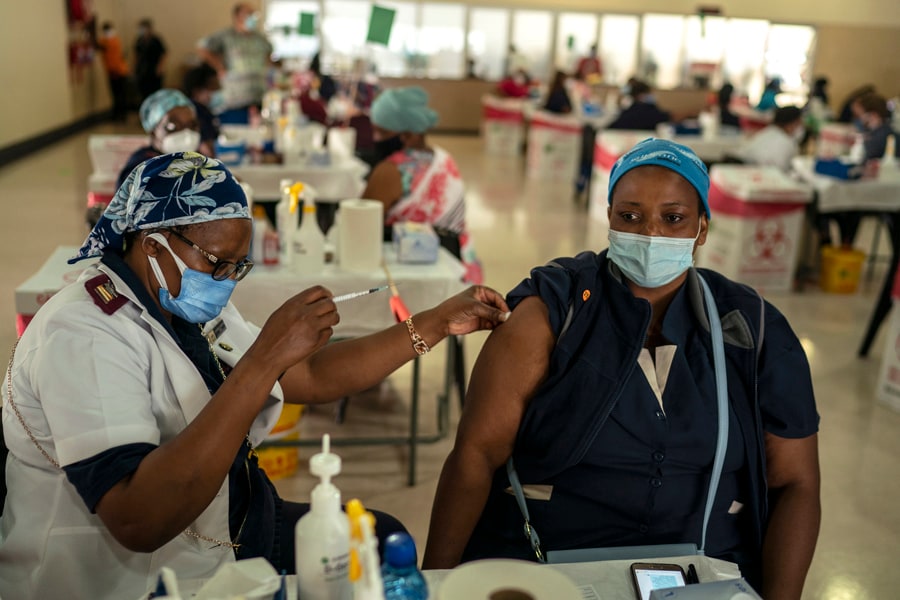
South Africa identifies new virus variant displaying a 'big jump in evolution'
In the past two days, scientists detected the B1.1.529 variant after observing an increase in infections in South Africa's economic hub surrounding Johannesburg and so far, 22 positive cases have been identified in the country
 A health care worker is given the Johnson & Johnson COVID-19 vaccine at an assembly hall on the grounds of Charlotte Maxeke Johannesburg Academic Hospital in Johannesburg, South Africa, March 5, 2021. A concerning new variant of the coronavirus, whose mutations evidence a “big jump in evolution,” is driving a spike in new COVID-19 infections in South Africa, scientists said on Thursday, Nov. 25. (Joao Silva/The New York Times)
A health care worker is given the Johnson & Johnson COVID-19 vaccine at an assembly hall on the grounds of Charlotte Maxeke Johannesburg Academic Hospital in Johannesburg, South Africa, March 5, 2021. A concerning new variant of the coronavirus, whose mutations evidence a “big jump in evolution,” is driving a spike in new COVID-19 infections in South Africa, scientists said on Thursday, Nov. 25. (Joao Silva/The New York Times)
JOHANNESBURG — Scientists in South Africa identified on Thursday a concerning new variant of the coronavirus, whose mutations mark a “big jump in evolution” that is driving a spike in new cases. Hours later, Britain banned flights from six southern African nations citing the variant.
In the past two days, scientists detected the B1.1.529 variant after observing an increase in infections in South Africa’s economic hub surrounding Johannesburg. So far, 22 positive cases have been identified in the country, according to South Africa’s National Institute for Communicable Diseases. One case has been detected in Hong Kong from someone who had traveled from South Africa. No cases have been detected yet in Britain.
Since the onset of the pandemic, a number of variants have emerged. One underlying concern about new variants is whether they will stymie progress against the pandemic or whether they will limit the effectiveness of vaccines. South African scientists will meet with the World Health Organization technical team Friday, where authorities will assign a letter of the Greek alphabet to this variant.
By Thursday evening, Britain had banned flights from South Africa, Botwsana, Eswatini, Lesotho, Namibia and Zimbabwe starting at noon local time Friday. The six nations will be added to the country’s red list, which would require British travelers coming from those nations to quarantine on arrival.
“More data is needed but we’re taking precautions now,” Sajid Javid, the health secretary, said in a tweet.
©2019 New York Times News Service







